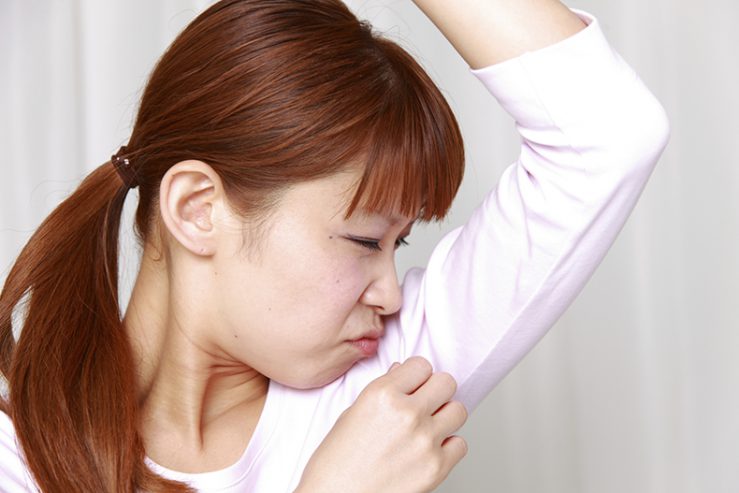For most of us, sweating is a normal occurrence, triggered by exertion, hot temperatures, and stress. Along with sweat comes body odor. The scent of your body odor depends in part on what sweat glands are in play.
You have two types of sweat glands:
- Eccrine glands
- Apocrine glands
The sweat from eccrine glands, which are found over most of your body, contains water and salt and evaporates quickly. The milkier sweat emitted from apocrine glands — which are found in the armpits, groin, and other areas with hair follicles — combines with bacteria on the skin.
Never Miss a Beat!
Subscribe to Our HealthBeat Newsletter!
Thank you for subscribing!
You can now select the specific newsletters you'd like to receive.
You are already subscribed.
Subscribe to more newsletters in our email preference center.
Sorry, an error occurred. Please try again later.
Get Healthy Tips Sent to Your Phone!
Source of the Smell
No matter how much we bathe or how much deodorant we apply, we all have our own unique scent, which some scientists call our “odor print.” A number of different factors can influence body odor, from your diet to your state of mind. Here are a few of the major determinants of the way we smell.
- Stress. When you’re feeling frazzled, you tend to sweat from your apocrine glands. When this sweat comes in contact with bacteria, it creates a pungent liquid that’s more obvious to other people — and animals — than regular sweat.
- Diet. What you eat can contribute to body odor in the form of sweat, as well as well as in your breath and urine. Garlic, onions, and curry are common culprits, but sulfur-rich vegetables such as Brussels sprouts and broccoli can also contribute to body odor.
- Certain health conditions. Some metabolic diseases can cause a distinctive body odor, particularly in their later stages. These include diabetes, as well as advanced kidney and liver disease. A rare disorder called trimethylaminuria, in which the body can’t properly metabolize a compound called trimethylamine, can lead to strong, unpleasant body odor that may smell like rotting fish or garbage.
- Genes. Suffer from stinky feet? You could be genetically predisposed to them. Some people have genes that lead to excessively sweaty feet and an overgrowth of the bacteria Micrococcus sedentarius, the cause of a condition called pitted keratolysis which leads to malodorous feet.
If you experience unusual or strong body odor, see your doctor to rule out any serious causes. Most of the time, sweat and body odor can be controlled with good hygiene, use of deodorant or antiperspirant, and dietary changes.
About Dermatology
The UPMC Department of Dermatology diagnoses, treats, and manages numerous hair, skin, and nail conditions and diseases. We care for common and uncommon conditions, and our treatments include both surgical and nonsurgical options. We operate several specialty centers for various conditions. The UPMC Cosmetic Surgery and Skin Health Center is a comprehensive dermatologic laser facility, offering a full range of cosmetic services and procedures. With UPMC Hillman Cancer Center, we offer a Skin Cancer Program that provides complete care from screenings, diagnosis, treatment, and beyond. Find a dermatology provider near you.
